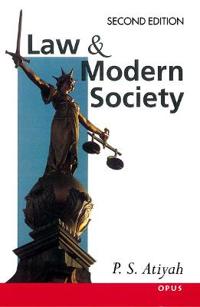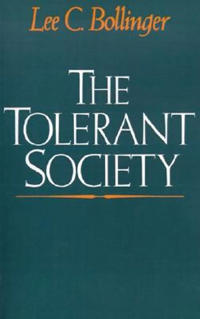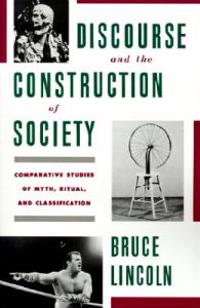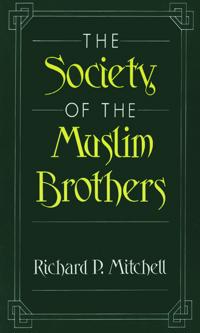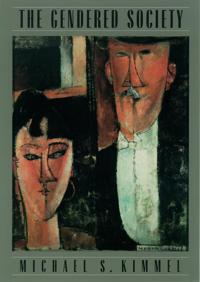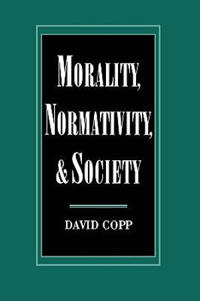Law and Modern Society (Storpocket)
avP. S. Atiyah
ISBN: 9780192892676 - UTGIVEN: 1995-09The law in a modern society is an extremely bulky and complex instrument, with a distracting tendency to become less fixed, less rule-oriented, and more discretionary. An institution made by men for the government of men, the law today can all too readily confuse and dismay us. How and why is so mu[...]
Toward A Planned Society: From Roosevelt To Nixon (Inbunden)
avOtis L. Graham
ISBN: 9780195019858 - UTGIVEN: 1976-01-01The Tolerant Society (Häftad)
avLee C. Bollinger
ISBN: 9780195054309 - UTGIVEN: 1988-03Bollinger provides a masterful critique of the major theories of freedom of expression, finding these theories persuasive but inadequate. Buttressing his argument with references to the Skokie case and many other examples, as well as a careful analysis of the primary literature on free speech, he co[...]
State, Society And The Elementary School In Imperial Germany (Inbunden)
avMarjorie Lamberti
ISBN: 9780195056112 - UTGIVEN: 1997-06-01Religion And Society In Russia: The Sixteenth And Seventeenth Centuries (Inbunden)
avPaul Bushkovitch
ISBN: 9780195069464 - UTGIVEN: 1997-06-01Morality, Normativity and Society (Inbunden)
avDavid Copp
ISBN: 9780195078794 - UTGIVEN: 1995-05-11Discourse and the Construction of Society: Comparative Studies of Myth, Ritual, and Classification (Häftad)
avBruce Lincoln
ISBN: 9780195079098 - UTGIVEN: 199211In this bold theoretical work, Bruce Lincoln explores the ways in which myth, ritual, and classification hold human societies together--and how, in times of crisis, they can be used to take a society apart and reconstruct it. Without overlooking the role of coercive force in the maintenance (or ove[...]
Neopatriarchy: A Theory of Distorted Change in Arab Society (Häftad)
avHisham Sharabi
ISBN: 9780195079135 - UTGIVEN: 1992-07The Society of the Muslim Brothers (Häftad)
avRichard P. Mitchell
ISBN: 9780195084375 - UTGIVEN: 199311Since its first publication in 1969, this book continues to be routinely cited as the standard source for the history of the revivalist Egyptian movement, the Muslim Brethren, up to the time of Nasser. This classic work is now accessible to a new generation of scholars and students interested in the[...]
Zionism and the Creation of a New Society (Inbunden)
avBen Halpern, Jehuda Reinharz
ISBN: 9780195092097 - UTGIVEN: 1998-05-01Sociolinguistic Perspectives: Papers on Language in Society, 1959-1994 (Inbunden)
avCharles A. Ferguson
ISBN: 9780195092905 - UTGIVEN: 1996-02-01Sociolinguistic Perspectives: Papers on Language in Society, 1959-1994 (Pocket)
avCharles A. Ferguson
ISBN: 9780195092912 - UTGIVEN: 1996-02-15Beyond Engineering: How Society Shapes Technology (Inbunden)
avRobert Pool
ISBN: 9780195107722 - UTGIVEN: 1997-08-01Shrines of the Slave Trade: Diola Religion and Society in Precolonial Senegambia (Inbunden)
avRobert M. Baum
ISBN: 9780195123920 - UTGIVEN: 1999-03-01Sex, Religion and the Making of Modern Madness: The Eberbach Asylum and German Society, 1815-1849 (Inbunden)
avAnn Goldberg
ISBN: 9780195125818 - UTGIVEN: 1999-01-01The Gendered Society (Inbunden)
avMichael S. Kimmel
ISBN: 9780195125870 - UTGIVEN: 200003They say that we come from different planets (men from Mars, women from Venus), that we have different brain chemistries and hormones, and that we listen, speak, and even define our morals differently. How is it then that men and women live together, take the same classes in school, eat the same foo[...]
Society and the Promise to David: The Reception History of 2 Samuel 7: 1-17 (Inbunden)
avWilliam M. Schniedewind
ISBN: 9780195126808 - UTGIVEN: 1999-05-01Inner Hygiene: Constipation and the Pursuit of Health in Modern Society (Inbunden)
avJames C. Whorton
ISBN: 9780195135817 - UTGIVEN: 2000-03-01Land and Freedom: Rural Society, Popular Protest and Party Politics in Antebellum New York (Inbunden)
avReeve Huston
ISBN: 9780195136005 - UTGIVEN: 2000-09-01Precolonial India in Practice: Society, Region and Identity in Medieval Andhra (Inbunden)
avCynthia Talbot
ISBN: 9780195136616 - UTGIVEN: 2000-11-01Safe Passage: Making it Through Adolescence in a Risky Society: What Parents, Schools, and Communities Can Do (Pocket)
avJoy G. Dryfoos
ISBN: 9780195137859 - UTGIVEN: 2005-11-10Beyond Idols: The Shape of a Secular Society (Inbunden)
avRichard K. Fenn
ISBN: 9780195143690 - UTGIVEN: 2001-06-01Morality, Normativity and Society (Häftad)
avDavid Copp
ISBN: 9780195144017 - UTGIVEN: 2001-04Moral claims not only purport to be true, they also purport to guide our choices. This book presents a new theory of normative judgment, the "standard-based theory," which offers a schematic account of the truth conditions of normative propositions of all kinds, including moral propositions and prop[...]
Studies in Classical History and Society (Inbunden)
avMeyer Reinhold
ISBN: 9780195145434 - UTGIVEN: 2001-11-01Saving Souls, Serving Society: Understanding the Faith Factor in Church-Based Social Ministry (Inbunden)
avHeidi Rolland Unruh, Ronald J. Sider
ISBN: 9780195161557 - UTGIVEN: 2005-11-03

